eOffice hosted our 6th Annual Coworking London Conference at the end of June (27-28 June) across 8 London coworking venues in two days. The educational event featured 30 of the leading voices in commercial real estate’s fastest growing sub-sector: FLEXSPACE
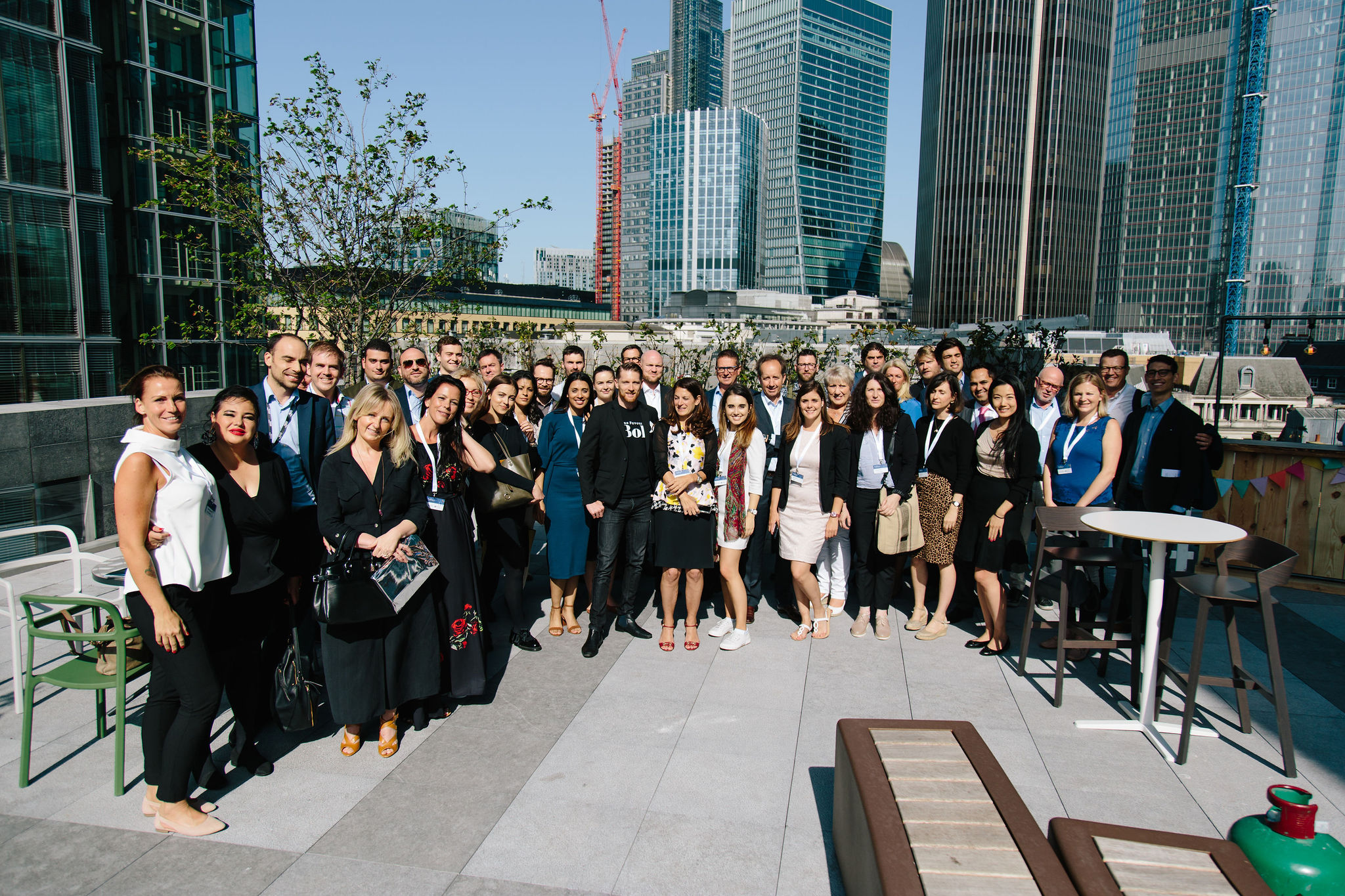
As part of the programme we were proud to showcase our all-female powerhouse panel featuring Lucy Watts (Instant Offices), Elaine Rossall (JLL) and Aneta Popiel (HB Reavis) to lead the discussion in trends, stats and drivers of growth.
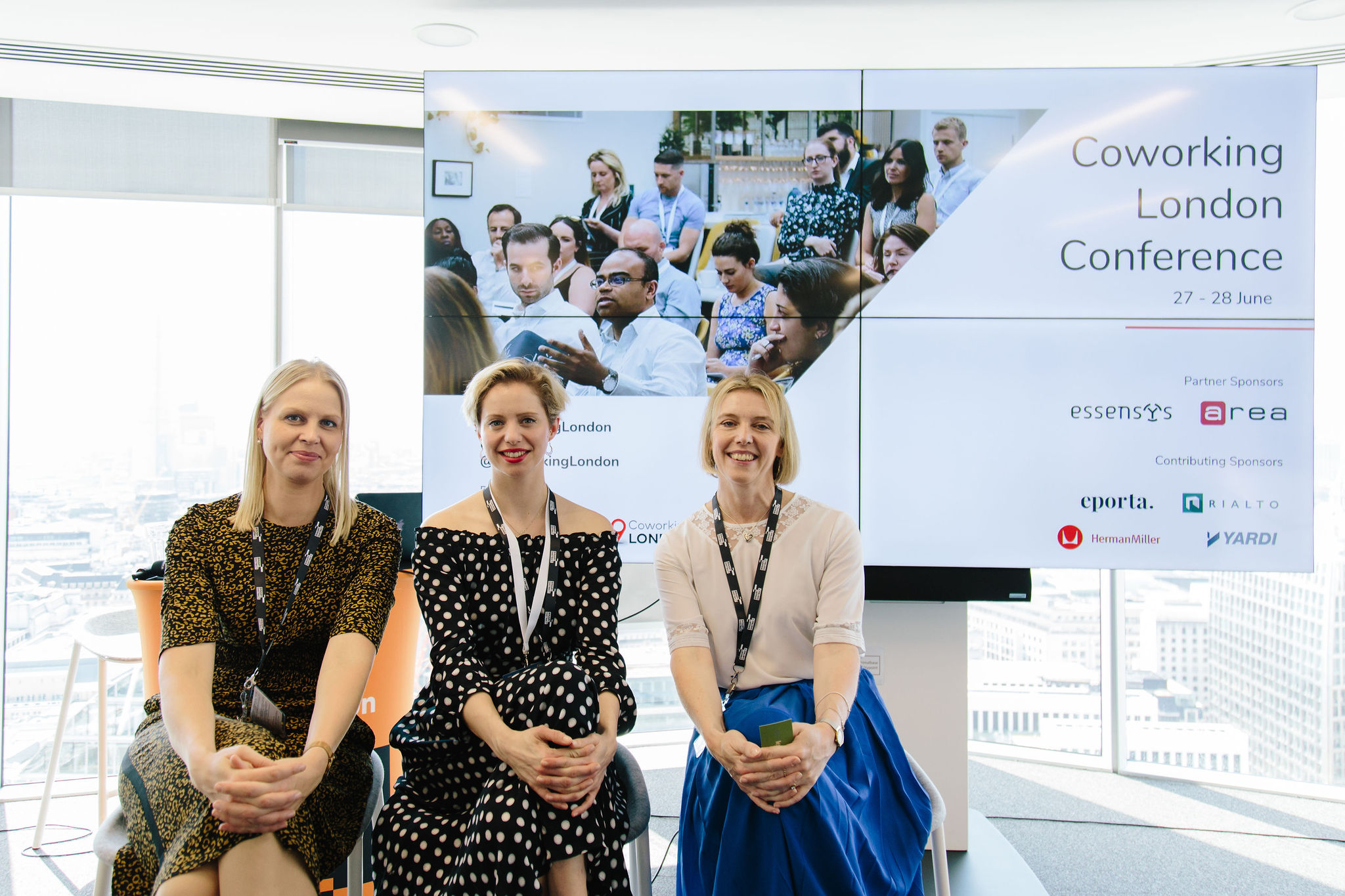
Here are our pick of the top facts and trends discussed over the 2 days:
-
Coworking and its Impact
Is coworking a buzzword, a trending word or a dead word? And what do we mean by coworking?
For us it is everything that is not conventional office space. If we use it to mean any “flex” offering then flex space is only 5% of London office space market (Mark Bott, Colliers) which has increased by 50% in the last 5 years. However, the fragmented market is growing as a new flex space opens every 5 days in the capital, making it the largest coworking stock in Europe (4.6% of overall) (Elaine Rossall JLL). David Garson of Office Freedom predicts 35% of flex needs will come from large corporates by end of 2019.
-
Flex providers move towards Flex delivery
How will coworking/flexspace be delivered now and the near future?
The biggest shift in the delivery is from coworking/flex operators themselves moving from being tenants to their own traditional leases into management partners with landlords. (Elaine Rossal JLL). A trend that is already adopted by Runway East and Central Working is set to grow as landlords begin to consider themselves as delivering space as a service.
-
Landlord-Operated Spaces
How are landlords entering the market?
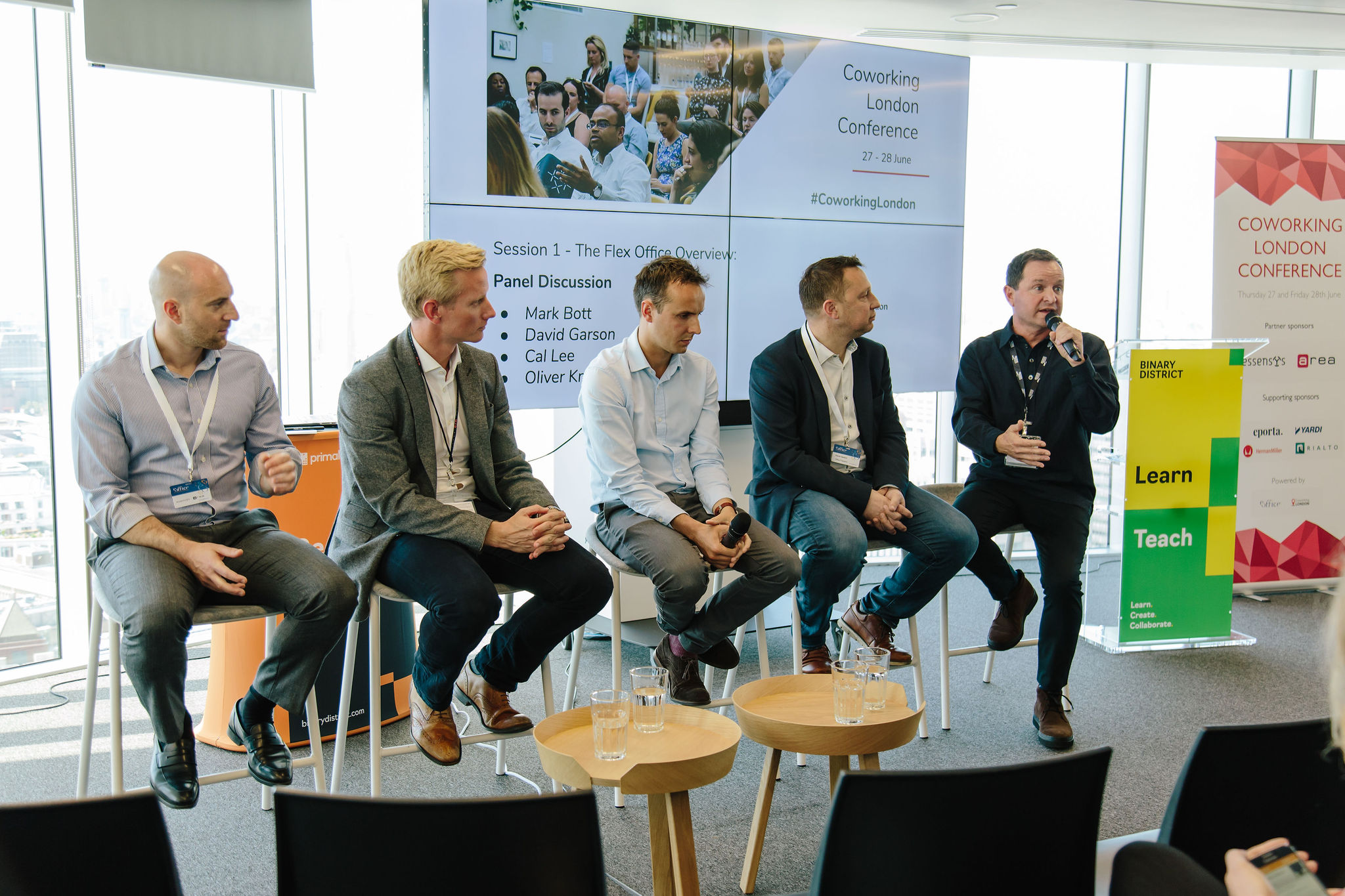
Landsec launched Myo in 2019 with shorter terms of 1-3 years. Oliver Knight says “for us less than 1 year is too flex for my clients. They want security.”Cal Lee (Workthere by Savills ) focussed on what clients want and above all it was Comfort. The main comfort factors where we fall short of expectations and can make the difference to our client experience are noise and air pollution. Hubhub on the other hand, are going beyond the space, fit out and contract terms (they feel this is now a given) to adopt a people-centric approach as Aneta describes “maximising opportunities between our people and the wider ecosystem” is what keeps clients coming back.
-
The Wellness Factor
What actually is wellbeing at work and how is it measured?
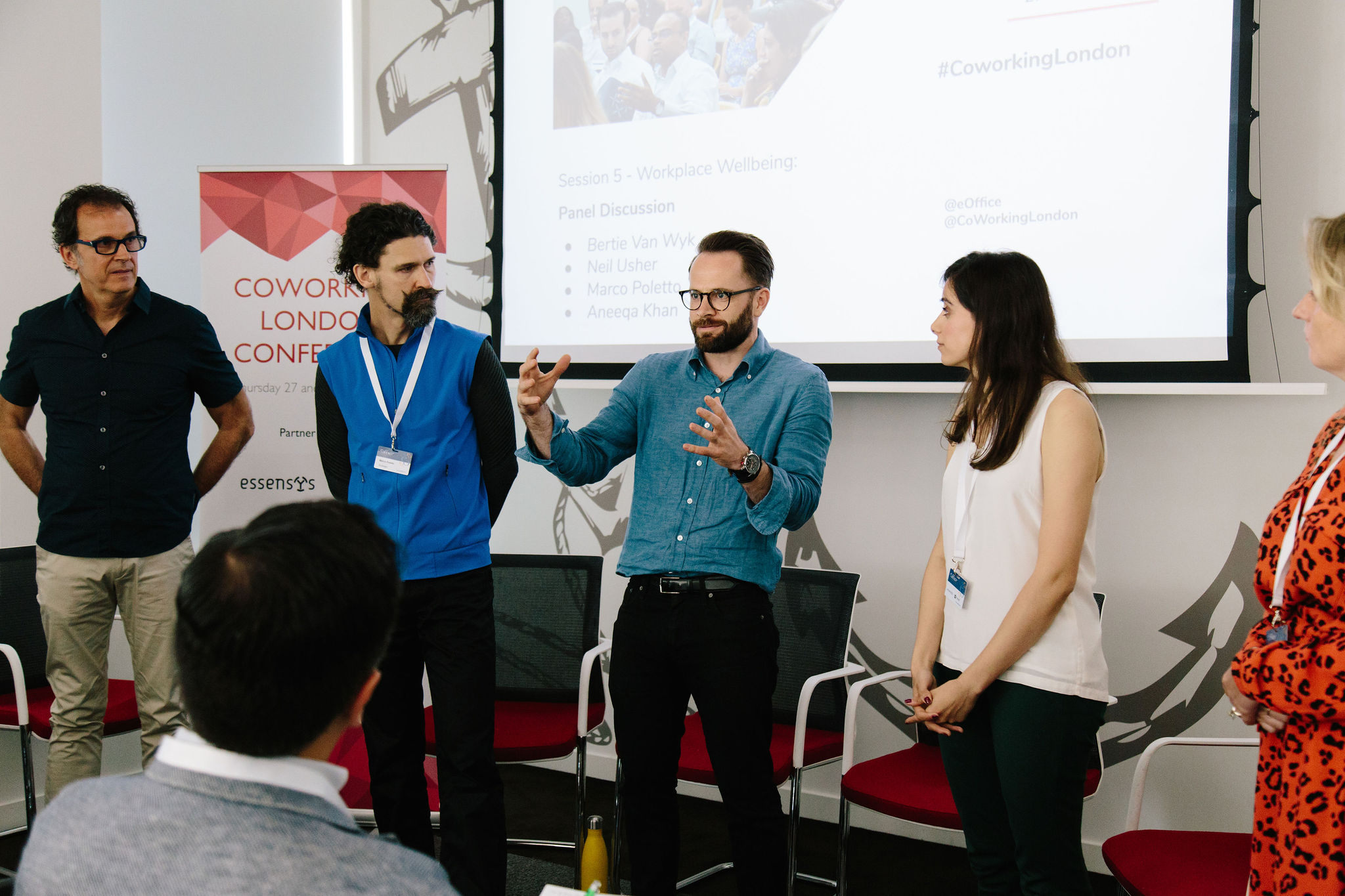
It is balance according to Neil Usher of GoSpace. He highlighted the importance of proximity to encourage communication between teams and for this to be balanced with individual and team needs. A point echoed by Bertie Van Wyk of Herman Miller, with in his emphasis on social ergonomics of human behaviour to create an engaged workforce. “Research shows that it takes 23 mins on average to resume a task once distracted” He educated us on our needs as humans to have access to private spaces as well as primary, secondary and tertiary spaces to carry out certain types of work. These all add to our sense of wellbeing at work. It requires a shift in focus when designing spaces with wellbeing in mind according to Aneeqa, founder of eporta, from design as a cost to an ROI driver.
-
Watch this space – Hotel Coworking
How will hotel groups compete?
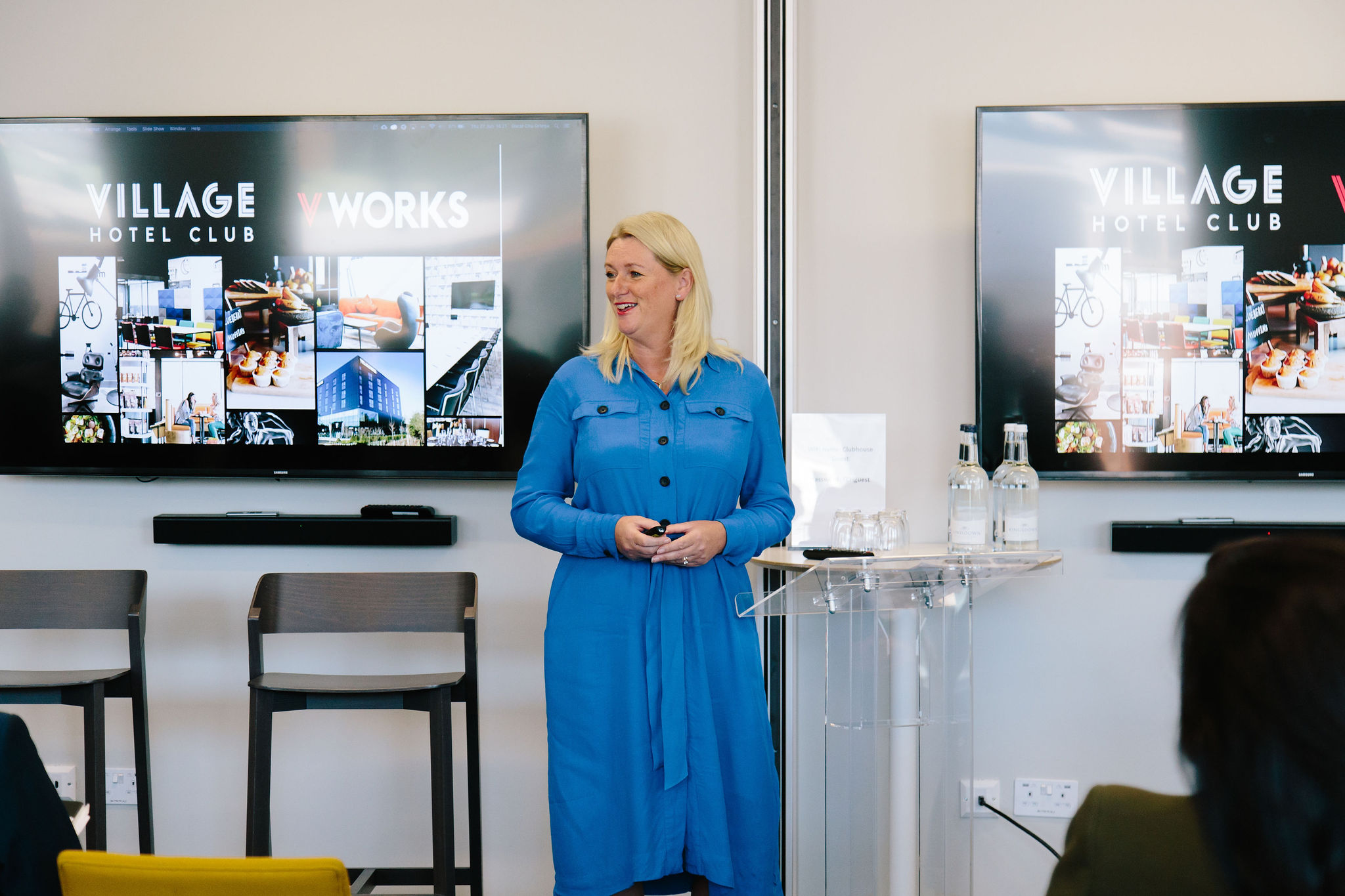
Vworks is the flexible space membership offered by Village Hotels, Lynn Fraser told us how they are able to combine their experience in hospitality and service with their strong infrastructure of amenities into a compelling offering for freelancers and small businesses. Spacemize optimise this opportunity with their platform linking users to hotels with space to work from with a low-cost daily/monthly membership. With new players such as Working From_ by Hoxton Hotels, this is a space to watch!
-
The Fourth Human Revolution
Will technology and AI replace our workforce?
Aki Stamatis of Area, thinks not, he emphasised “the fourth human revolution as the combination of the humans and technology together are greater than either of them by themselves!”. Those that will succeed are those that use technology to remove friction, improve the customer experience and manage the space better.
Proptech Innovation Awards
The conference also featured our PropTech Startup Awards, where 6 companies pitched to be named the Most Innovative PropTech Startup by a judging panel featuring BNP Paribas, Roundhill Capital, Concrete VC, Legal & General and Estates Gazette.
Congratulations to our winners LightFi led by CEO Alex Bak.
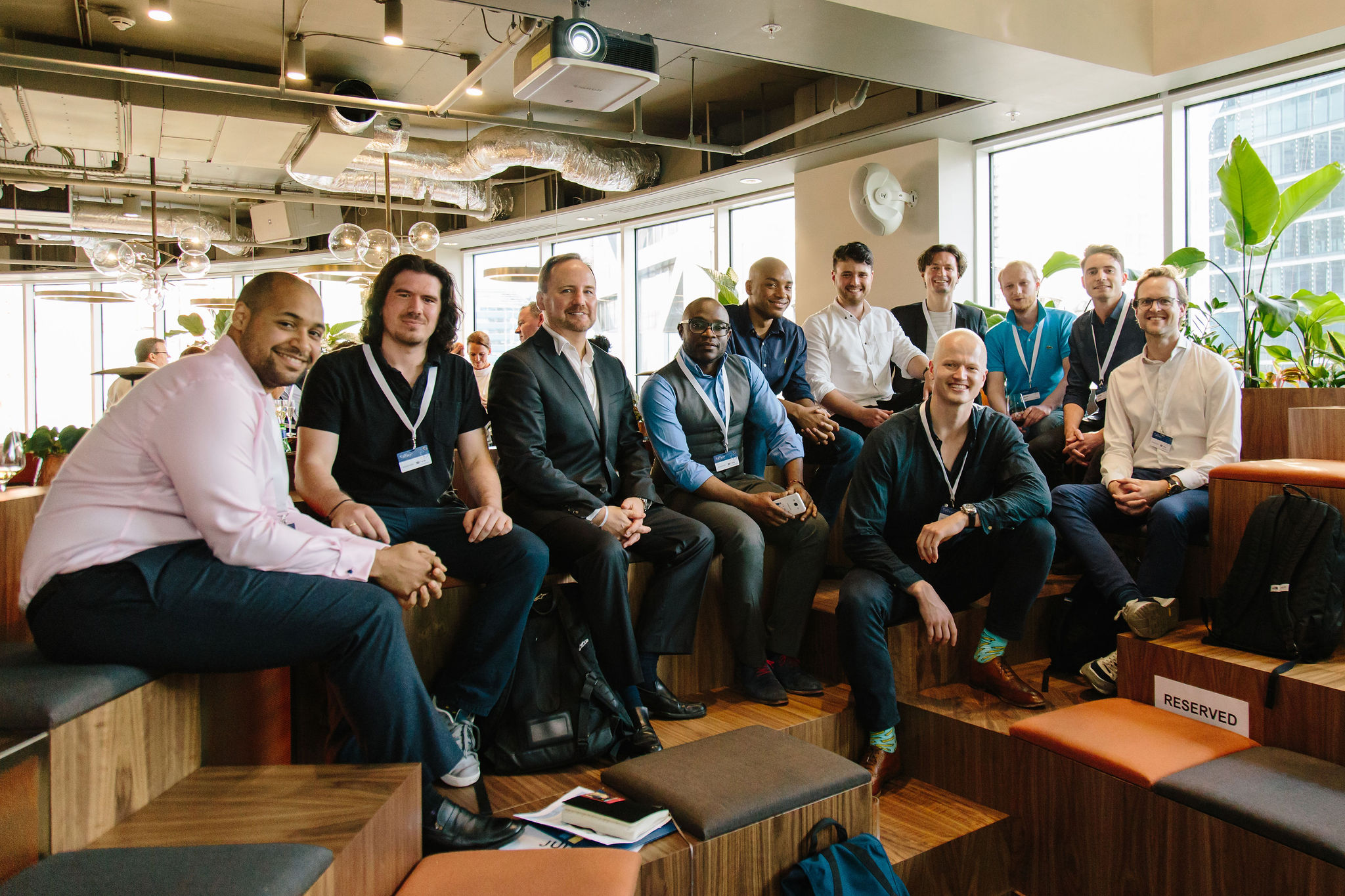
With Thanks…..
Partner Sponsors:

Contributing Sponsors:

Venue Hosts:

